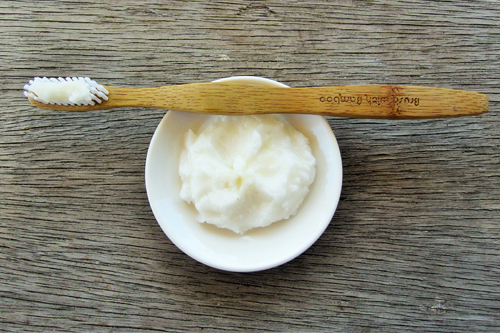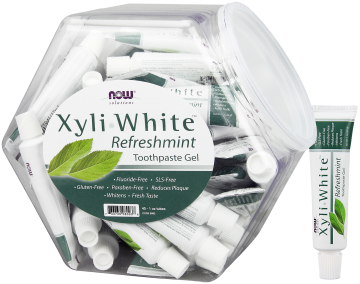
Longevity starts with sustainability correct? Well, a good place to start when it comes to personal care is toothpaste.
We discussed fluoride when we spoke about tremor diseases like Parkinson’s. Unless prescribed by a doctor, nothing you use daily should say:
“WARNING: Keep out of reach of children under 6 years of age. If you accidentally swallow more than used for brushing, seek professional help or contact a poison control center immediately.”

I always say most of your ingredients for personal care products should come from the supermarket. If you can’t eat it, you shouldn’t be putting it on yourself, or in your mouth. Now I’m not a doctor or dentist but this idea will always make sense.
It’s really hard to find a toothpaste that doesn’t have questionable Ingredients. When traveling I use Xyli-White.
What are questionable Ingredients?
- Sweeteners: Sorbitol, is often used in toothpaste to help the taste, There is no evidence that these sweeteners are beneficial (or even safe) for use in the mouth. Xylitol has shown some positive benefits for oral health in some studies, but it remains a controversial ingredient in toothpaste.
- Fluoride: This is the most common chemical to cause controversy in toothpaste and tap water
- Triclosan: This is a chemical that’s mainly used in antibacterial soap and products. We all know how toxic those can be.
- Glycerin: is found in most toothpaste, even natural options. It is sweet, colorless, and I do not know how well this is for your teeth since it can coat and block teeth from receiving minerals in saliva.
- Surfactants: Many kinds of toothpaste contain surfactants like sodium lauryl sulfate, this allows the toothpaste to lather, but can also cause mouth sores and ulcers.

At home, I just decided to make my own. I will share the ingredients with you. Here’s a recipe for a healthier teeth whitening toothpaste.
- Filtered water – The last thing you want in your toothpaste is fluoride, chlorine and who knows what else goes into tap water. Go for bottled or filtered water in this recipe.
- Bentonite clay – Bentonite clay absorbs toxins, heavy metals, and impurities.
- Calcium/Magnesium Powder – Calcium and magnesium whiten teeth and provide a good source of minerals.
- Coconut oil – (1/4 cup coconut oil) Coconut oil is a natural antibacterial and anti-fungal, it’s also a good binding agent.
- Baking soda – Baking soda helps whiten the teeth by removing stains. It also contains minerals and is alkaline.
- Trace minerals – Provides an array of extra minerals to your toothpaste.
- Essential oils – (10 drops) The essential oils I use in this recipe are peppermint oil. Peppermint supports circulation to the gums and teeth. Cinnamon oil is also recommended.
- Raw Honey – This is optional, but a small amount of honey can add a touch of sweetness to your toothpaste. Honey also acts as a natural antibacterial.
Read My Post On:


